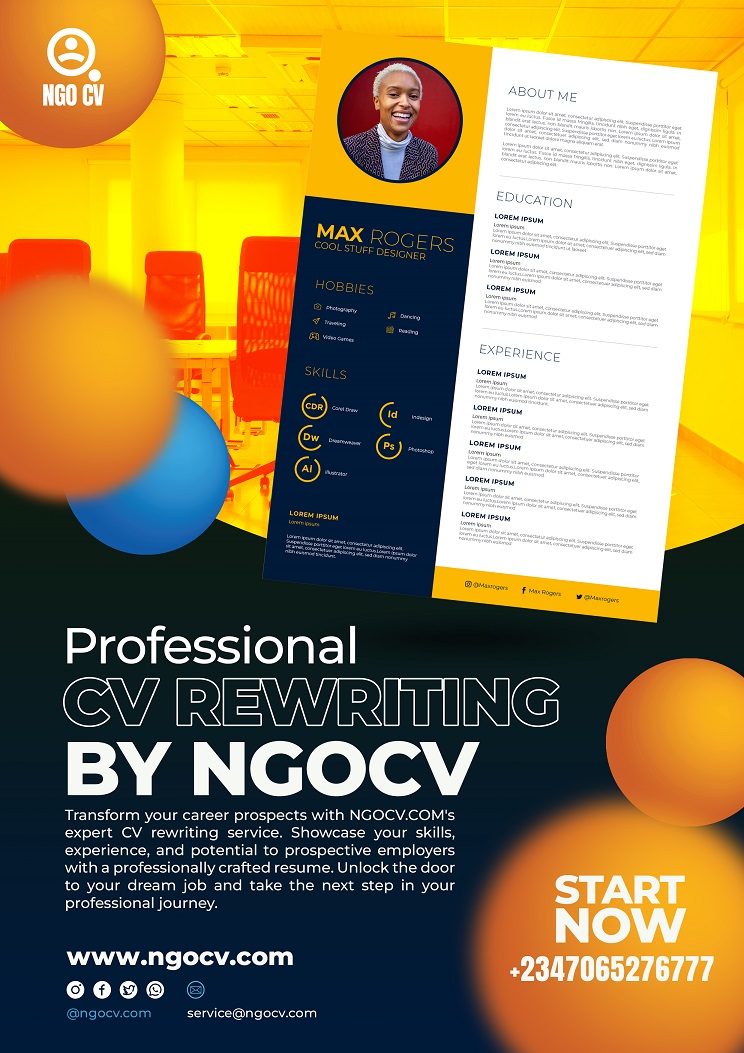CBM Christoffel-Blindenmission Christian Blind Mission e. V.
in cooperation with Green Concern for Development (GREENCODE), Justice, Peace and Reconciliation Movement (JPRM), Taimako Community Development Initiative (Taimako-CDI), Gembu Center for HIV/AIDS Advocacy Nigeria (GEECHAN)
Terms of Reference for
Peace and Conflict Assessment
- About CBM Christian Blind Mission e.V. (CBM):
CBM is a Christian international development organisation, committed to improving the quality of life of people with disabilities in the poorest communities of the world irrespective of race, gender or religious belief. Based on its core values and over 100 years of professional expertise, CBM addresses poverty both as a cause and as a consequence of disability and works in partnership with local and national civil society organisations to create an inclusive society for all.
Our approach: Disability-inclusive development is the framework of all our initiatives and the key theme which drives our activities and the impact of our work. We believe that this is the most effective way to bring positive change to the lives of people with disabilities living in poverty and their communities. Through our disability-inclusive development approach, we address the barriers that hinder access and participation and actively seek to ensure the full participation of people with disabilities as empowered self-advocates in all development and emergency response processes.
CBM is in process of developing a project proposal for Transitional Development Assistance (TDA), expecting funding from the German Federal Ministry for Economic Cooperation and Development (BMZ). TDA bridges the gap between humanitarian aid and sustainable development cooperation while also contributing to peacebuilding. It is designed to support affected people and local structures in overcoming crises and strengthening their resilience. In countries with a higher or acute potential for conflict escalation, a Peace and Conflict Assessment (PCA) is conducted as standard procedure during project development.
- About the Planned Project:
The project will be implemented in cooperation with the four local partner organizations Green Concern for Development (GREENCODE), Justice, Peace, and Reconciliation Movement (JPRM), Taimako Community Development Initiative (Taimako-CDI), and Gembu Center for HIV/Aids Advocacy Nigeria (GEECHAN). The project aims at strengthening the resilience of vulnerable households in selected communities in Adamawa, Borno, Yobe, and Taraba through increased food security, restoration of livelihoods and inclusive basic infrastructure.
Specific outcomes of the project are:
- Food security of vulnerable households is improved through capacity-building for sustainable agricultural self-production.
- Disability-inclusive WASH services in vulnerable communities are restored and functional through infrastructure construction and empowerment of community members.
- The peaceful coexistence of community members is strengthened through the rebuilding of local self-help structures and the integration/ inclusion of marginalised groups/individuals.
The project seeks to promote a participatory and disability-inclusive approach through its activities.
- Peace and Conflict Assessment
The assignment will use the methodological framework of a PCA, a diagnostic tool for a context assessment and for understanding the contextual challenges.Further, the PCA is a methodological approach for ensuring conflict-sensitivity of the planned project. Lastly, the PCA is used as a mechanism for bringing project stakeholders together to discuss and agree upon a shared understanding of the conflict dynamics to improve the project design in the context of peaceful and inclusive coexistence.
The four specific objectives of the specific PCA to be executed in the aforementioned context are:
- Description of the main factors leading to conflict, fragility and violence as well as needs for peace
- Assessment of the relevance of the planned project to peace and security
- Identification, definition, and assessment of the risks and the risk management in the context of conflict, fragility, and violence
- Guidance on monitoring impacts and avoiding negative impacts
In addition to these, an in-depth
- Analysis of the gender dynamics relevant for the target groups (Gender Analysis)
shall be conducted.
The results and report of the PCA and Gender Analysis will be shared with CBM, the local partner organizations and the donor BMZ and inform the project proposal.
- Design, methodology and deliverables
The assignment can be conducted remotely or partially remotely, due to the COVID-19 situation.
The PCA consultant/team is expected to use a diverse set of methodologies:
- Desk review*:* The PCA should make use of existing peace and conflict analyses and literature and reference frameworks for Nigeria wherever possible.
- (Remote) Interviews*:* Interviews involving representatives of CBM and the local partner organizations and relevant actors, such as representatives from clusters and other (inter-) national organizations working in Lebanon.
- (Remote) Focus group discussions*:* Focus group discussions may involve potential beneficiaries.
- (Remote) Analysis workshops: Analysis workshops (context analysis; assessment of relevance; risks and monitoring) allow key project stakeholders to engage in a participatory conflict analysis process.
- Assessment report writing: Assessment report (around 20 pages)
The PCA is expected to be conducted in a disability-inclusive and participatory manner, using a gender-sensitive as well as conflict-sensitive approach.
- Timeframe
The anticipated time period for the assignment is 20 days and should be completed before 18.07.2022.
- Qualifications
The PCA and gender analysis consultant/ team should possess the following qualifications:
- Degree related to Social Sciences, International Development, Psychosocial or Health related studies, or similar
- Proven experience with conducting PCAs and familiarity with the academic and policy literature surrounding the causes and consequences of violent conflict, conflict-sensitivity and do no harm assessments
- Excellent analytical and writing skills; ability to write in a structured, lucid, and concise manner, without losing the depth of the substance
- Experience in participatory approach and facilitation skills are a must
- Technical expertise in the field of disability and inclusive development and preferably in food security, TVET, economic empowerment WASH, MHPSS, disaster preparedness, and social cohesion between refugees, returnees, and host communities in fragile settings
- Proven work experience with NGOs or INGOs and governmental stakeholders
- Experience in transitional development assistance and/ or humanitarian aid projects
- Proficiency in written and spoken English is essential, knowledge of local languages is an asset
- Work experience in Nigeria is preferable
- Expertise in Child Safeguarding principles and gender competency are an asset
Verification of these qualifications will be based on the company/consultancy profile and curriculum vitae of each team member. Candidates are also encouraged to submit other references such as research papers or articles that demonstrate their familiarity with the subject as well as their report writing skills.
The PCA consultant/ team is expected to be covered by a medical insurance during the time of service under this consultancy. The contracting agencies will not assume responsibility for any damage, injury, or loss of life by the PCA consultant/team in the framework of this assignment.
Child Safeguarding Policy: As a condition of entering into a consultancy agreement the PCA consultant/team must sign the CBM Child Safeguarding Policy and abide by the terms and conditions thereof.
How to apply
Please submit the following documents; CV with references; short proposal, company profile where applicable (with all relevant supporting document) and budget detailing the daily rate, through either hardcopy or soft copy via email using the details below:
Hard Copy Submission: The information can be sent via hardcopy to the CBM International Country Office located on No.13 Okemesi Crescent, off Twon Brass Street, Garki 2, Abuja- FCT, Nigeria, in a sealed envelope marked “Consultancy; Gender Analysis and Peace & Conflict Assessment”.
or
Soft Copy Via Email: Proposals can also be submitted by email to the following dedicated, controlled, & secure email address: [email protected] using “Consultancy; Gender Analysis and Peace & Conflict Assessment” as the subject of the email.
Deadline for receiving both the hardcopy and soft copy applications is Tuesday, 28th June 2022 by 5:00pm.
The PCA consultant/team will be under the responsibility of CBM in close cooperation with all four partner organisations. The contract of PCA consultant/team will be issued by CBM.
Only shortlisted candidates will be contacted.




